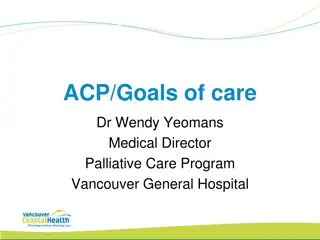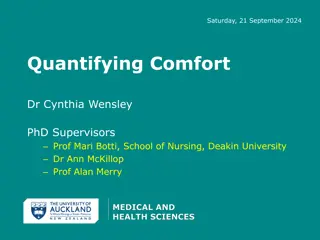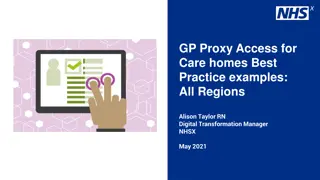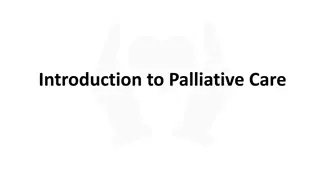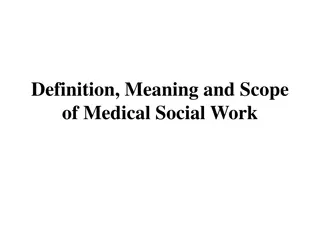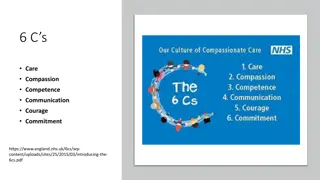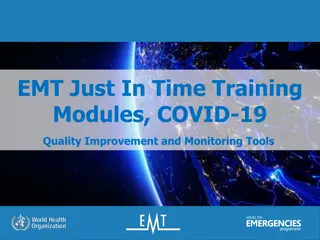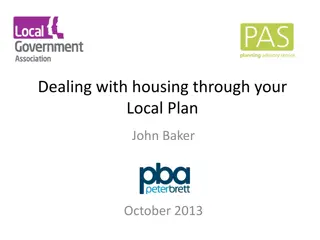Understanding Proportionate Care in Healthcare
Explore the concept of Proportionate Care, previously known as Single-Handed Care, which aims to increase capacity in the care market, reduce delayed transfers of care, and improve service user outcomes. Addressing common concerns and myths related to moving and handling tasks, this approach promotes personalized experiences of care, empowerment, independence, and enhanced mental and physical health. Learn about equipment examples and the shift towards 1:1 care as a long-term plan to meet residents' needs effectively.
Download Presentation

Please find below an Image/Link to download the presentation.
The content on the website is provided AS IS for your information and personal use only. It may not be sold, licensed, or shared on other websites without obtaining consent from the author. Download presentation by click this link. If you encounter any issues during the download, it is possible that the publisher has removed the file from their server.
E N D
Presentation Transcript
Proportionate Care (previously referred to as Single-Handed Care)
WHY? What s the point? Why not carry on as we are? What s wrong with the current system?
Improve Service User Outcomes This Photo by Unknown Author is licensed under CC BY Personalised Experience of Care, Empowerment, Independence & Improved Mental and Physical Health and Wellbeing
Common Concerns and myths Moving and handling equipment requires two carers to use Care provider policy states it must be 2 for moving and handling Insurance stipulates must be two for moving and handling It is against the law 2 carers have been recommended in the past or by other health professionals
Common Concerns Addressed ALL moving and handling tasks must be individually risk assessed by a trained person, and a safer handling plan should be provided Specific/complex moving and handling assessments should be carried out by Occupational Therapists/Physiotherapists/Moving and Handling specialists - LCC OTs are trained and skilled in proportionate care Specialised equipment is available to support proportionate care All moving and handling tasks should be reviewed by a trained competent person
Long Term Plan 1:1 care will be the norm Multiple carer packages require assessment by an Occupational Therapist and approval by senior management LCC will be able to meet the needs of ALL it s residents, providing care proportionate to needs whilst promoting safety, privacy, dignity and independence.





